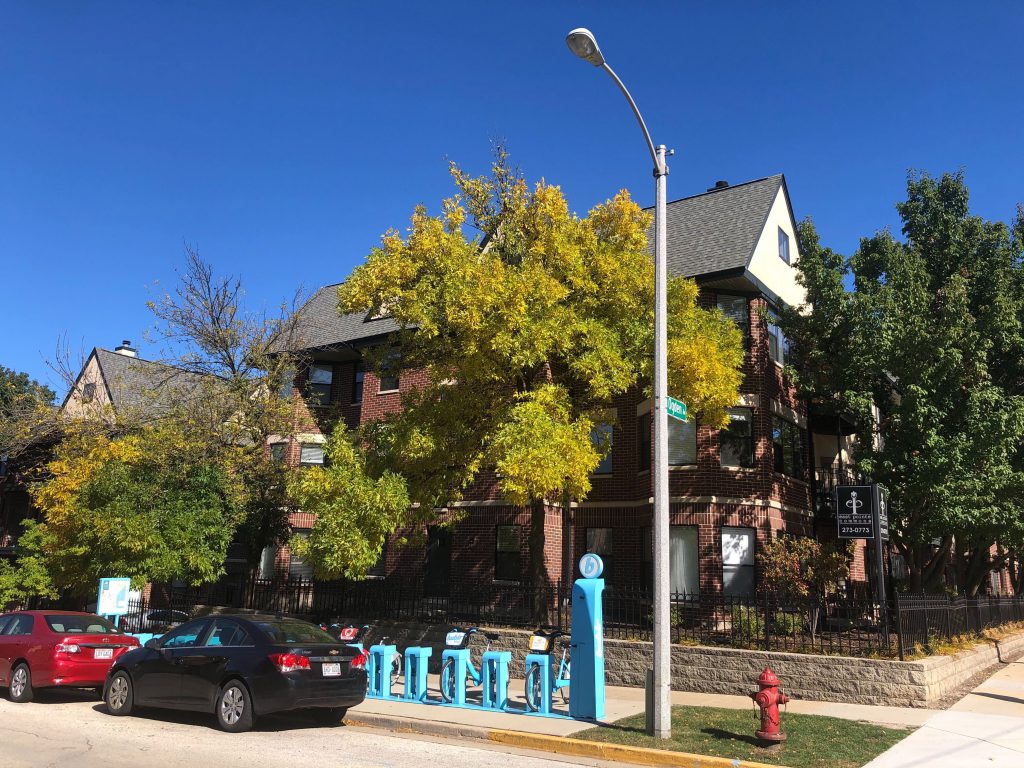About That Proposed Street Lighting Fee
Average homeowner fee is $45 per year so city could replace 100-year-old circuitry
One of the most notable impacts for residents of Milwaukee’s proposed $1.6 billion 2021 budget is a new street lighting fee.
The city’s budget office estimates the average homeowner would pay $45 annually. Property owners would see the fee on their quarterly water bills.
The fee will raise approximately $10.5 million by levying a charge against privately-owned properties. The proposed structure is similar to how the city levies the snow & ice removal fee: a per-foot rate would be set and multiplied by the amount of street frontage a property has.
But why the fee?
The big picture, according to the budget office and Department of Public Works (DPW), is that the move would allow the city to recruit and retain electricians and speed up the replacement of lighting infrastructure that is more than 100 years old.
“It provides a dedicated funding source for street lighting services,” said city fiscal planning specialist Bill Christianson during a budget meeting Friday. “A dedicated street lighting fee protects this critical service from budget pressures each year.”
Last year Mayor Tom Barrett proposed to shorten the period street lights were on each day by 10 minutes, a move that was estimated to save $210,000. The council rejected the change. So this time Barrett is proposing the fee.
The fee would remove the $9.3 million the city spends each year on street lighting from the state-capped property tax levy. This would allow the city to avoid cutting the same amount in spending elsewhere.
The additional $1.2 million would go towards a raise for all electricians. Only 66 percent of its positions are currently full and 17 of the 55 electricians will reach retirement-eligibility come August.
“This is really going to help us stabilize our workforce,” said DPW Commissioner Jeff Polenske.
City Engineer Samir Amin said the city used to receive over 50 applicants for licensed-electrician job openings, but now only gets a couple and some aren’t even qualified. An apprenticeship program within the department helps train from within, but the program takes four years to complete and the city still loses electricians once they’re licensed.
DPW attributes the staffing issue as the driver of its declining repair performance. Since 2018 the city has been unable to repair all street light outages within 24 hours. In 2018 it hit 91% within 24 hours, then 82% in 2019 and 70% in 2020. It had achieved a 98 percent rate in the years prior.
“There is obviously a safety concern when those lights are out,” said Polenske.
If the funding and workforce are stabilized Polenske estimates all street lights in the city can be converted to LED lights within six years. Conversion is already underway, with new lights yielding a 70 percent energy cost savings.
As the city adds LED lights it would see its $3.5 million street lighting electrical bill reduced.
Those savings would be deployed into a project to replace pre-1930s series circuitry (similar to old Christmas tree string lights where a single bad light takes down a whole strand) that powers 40% of the city’s lights with more reliable multiple circuitry. The upgrades, currently on a 30-year pace, would be cut to 11 to 14 years. Changes include not only replacing circuits, but wiring that is buried underground without insulation. An improvement in street light reliability is expected.
“Right now we are somewhat chasing our tails a bit with repairs,” said Polenske. He said there are only a few cities with series circuitry left. Bertran said the city replaces the old circuits during all major road projects, but the work takes time.
Ald. Scott Spiker asked if the city could fund only a portion of the fee. “If we don’t have the electricians we can’t perform the work, so really they go hand in hand,” said Amin of the need to fund the raises.
“The bigger problem is that $10.5 million would push us over the levy limit,” said budget director Dennis Yaccarino of having to absorb the street lighting cost back into the general fund. State law caps the growth of the city’s property tax levy to the value of new construction.
Ald. Michael Murphy asked for a report on the cost of continuing to repair the existing series circuitry. He said he would like to see if it would be more effective to replace the circuitry faster. But Amin and Bertran said it was difficult to find private contractors that would even do the work.
Murphy, chair of the Reckless Driving Task Force, also asked for information on what the city spends on downed light poles every year. An informal estimate from DPW pegs the cost at $600,000 to $1 million annually.
The alderman, who chairs the city’s Finance & Personnel Committee charged with reviewing the budget, said he wanted to see more details before approving the fee. “I understand why you’re doing it, you’re pushing it off the levy to a fee otherwise you need to make a $10 million cut,” said Murphy. But he said DPW needs to communicate the fee to residents. “I am guessing when people get their first quarterly water bill next year they’re going to be going ‘what the heck is this?'”
The city’s budget is currently strained not only because of the pandemic, but a steady decline in state shared revenue and a looming need to increase its annual pension fund contribution by over $60 million starting in 2023. The city is prevented by state law from levying its own sales or income tax.
The fee does not cover costs related to traffic lights.
The council is scheduled to adopt the final budget in early November.
More about the 2021 Milwaukee Budget
- City Hall: Council Delays on Federal COPS Grant - Jeramey Jannene - Nov 25th, 2020
- City Hall: Council Overrides One of Two Barrett Vetos - Jeramey Jannene - Nov 24th, 2020
- City Hall: Barrett Issues Two Budget Vetoes - Jeramey Jannene - Nov 18th, 2020
- City Hall: $1.6 Billion Adopted Budget Raises Fees, Cuts Police - Jeramey Jannene - Nov 6th, 2020
- Transportation: Budget Amendment Would Move Milwaukee Towards “Vision Zero” - Jeramey Jannene - Oct 30th, 2020
- City Hall: Committee Approves Over 20 Amendments To Milwaukee Budget - Jeramey Jannene - Oct 30th, 2020
- City Hall: Almost Half of Budget Amendments Are Policy Footnotes - Jeramey Jannene - Oct 29th, 2020
- City Hall: Community Groups Propose Changes - Jeramey Jannene - Oct 19th, 2020
- City Hall: City Could Lose 30 More Police Officers - Jeramey Jannene - Oct 19th, 2020
- Transportation: Should Milwaukee Stop The Hop? - Jeramey Jannene - Oct 13th, 2020
Read more about 2021 Milwaukee Budget here
Political Contributions Tracker
Displaying political contributions between people mentioned in this story. Learn more.
- December 31, 2020 - Tom Barrett received $500 from Jeff Polenske
- December 2, 2018 - Tom Barrett received $400 from Jeff Polenske
- May 25, 2017 - Tom Barrett received $400 from Jeff Polenske
- February 11, 2016 - Nik Kovac received $50 from Jeff Polenske
- February 1, 2016 - Tom Barrett received $400 from Jeff Polenske
City Hall
-
Council Blocked In Fight To Oversee Top City Officials
 Dec 16th, 2025 by Jeramey Jannene
Dec 16th, 2025 by Jeramey Jannene
-
Latest Effort to Adopt New Milwaukee Flag Going Nowhere
 Dec 3rd, 2025 by Jeramey Jannene
Dec 3rd, 2025 by Jeramey Jannene
-
After Deadly May Fire, Milwaukee Adds New Safety Requirements
 Dec 2nd, 2025 by Jeramey Jannene
Dec 2nd, 2025 by Jeramey Jannene























No one likes extra fees, but stuff (and staff) cost money. Looking forward to the State returning to Milwaukee a bigger share of the money we send them.